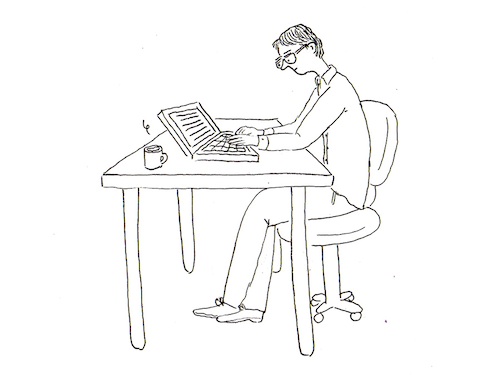From here, regarding Sweden contemplating a six-hour workday:
As we transition to an economy dominated by knowledge workers rather than assembly-line workers, where productivity is more difficult to both measure and optimize, we haven’t yet figured out the best formula for maximizing output—something that, in any event, will vary from region to region and sector to sector. Is the answer more hours? Fewer hours? Flextime? Technological solutions that have nothing to do with hours as units of labor?
From the same article, via a Foreign Policy article in 2012:
The bottom line is that productivity — driven by technology and well-functioning markets — drives wealth far more than hours worked. And very few jobs in developed economies nowadays are classic assembly-line positions, where working 20 percent longer will mechanically produce 20 percent more widgets. Psychology plays a role here too: At least 40 years of studies suggest that people work harder if you limit their time to complete a certain task. In some cases, working too hard can actually reduce output. Long working hours are also associated with ill health, which means lost labor in the long term, as well as higher medical costs for employers and government.
The first thing that anyone skeptical here will say is basic: Sweden isn’t the U.S. In fact, Sweden is essentially socialist. But the root of capitalism is in hard work and long hours! Well, yes and no. The truth is that anyone that tells you about “the roots of capitalism” doesn’t completely understand capitalism, because “the roots” aren’t 100 percent clear — and if anything, the workday isn’t one of the core tenets, per se. Most ideas about the length of the workday in America came from the Industrial Revolution period; there, the connection was a bit more direct. If someone works eight hours, they can reasonably be expected to make eight hours worth of (X-Product). But if your work is more ideas or spreadsheets or sales pitches, the eight-to-ten-hours-in model doesn’t always result in the same on the back-end.
See, people can’t focus effectively for an entire eight-hour workday, especially one besieged by meetings — see here and here. There’s always a fascination with “seat time” at larger organizations — in honesty, people seen at work at 7-8pm often have a greater chance of getting the next series of advancements — but the focus, as noted above, should be on productivity, not hours. What always amazed me is that people are inherently different. So if you have 10 employees working on similar projects, the odds that all 10 will finish the project in the same amount of time are staggering — some will take 40 hours/week, some will take 28 hours/week, and some will take 60 hours/week. This has tons of context around their intelligence, their connection to the project, their work style, their home life, their relationship situation, their proximity to work, etc. How do we standardize the quantity of time at work when all the people doing the work are coming to it from such different places?
This idea is a long way from taking hold in America — at most companies, working late and working hard are major badges of honor — but some are at least discussing it now.

We absolutely must be talking about a results economy not a time economy. It isn’t just about business, it is about our physiological welfare. It takes renewal time to be creative and mindful. Viva the 6 hour day!
Reblogged this on Gr8fullsoul.